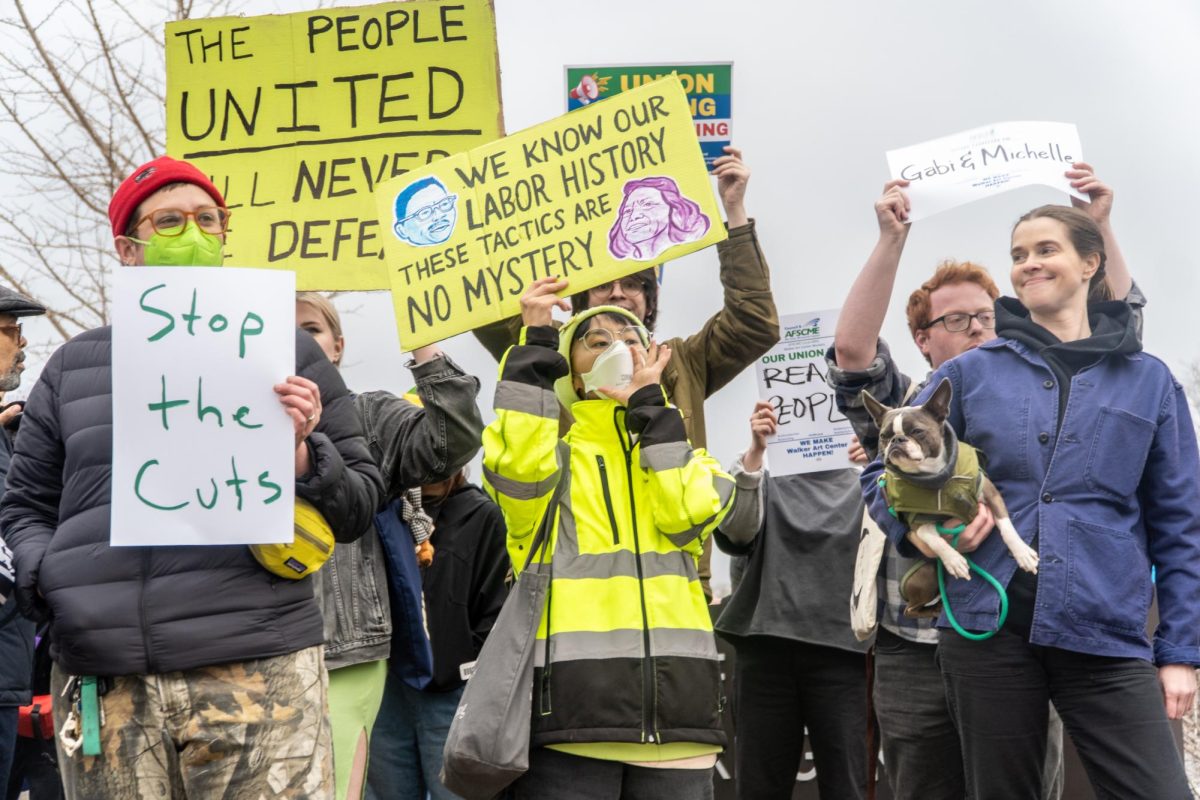What: Aimee Mann
When: 6 p.m., Saturday
Where: First Avenue Mainroom, 701 N. First Ave., Minneapolis
Cost: $25
Age:18+
Poppy hooks and catchy choruses do not usually accompany bleak emotional truths, but Aimee Mann isn’t your usual singer-songwriter. Her latest album, “Charmer,” explores the pitfalls of narcissism with sweet melodies and a touch of irony.
Mann began her musical career as the frontwoman of the new wave band ’Til Tuesday. As a solo artist, she bounced from one major label to the next until founding Superego records in 1999.
Taking on new projects has never scared Mann. She guest-starred on “Portlandia” last year, worked with Jon Hamm and Laura Linney in her two latest music videos and sang a duet with James Mercer of the Shins for “Charmer.” In between development meetings for a musical based on her album “The Forgotten Arm” and other ongoing projects, her recent tour made it through a hurricane.
A&E talked with the Los Angeles-based musician about the tour and what it means to be a charmer.
You recently made headlines with your new twist on Barry Manilow’s “Mandy.” How did get the idea to write the superstorm “Sandy“ spoof?
When we were in the cab driving over to the soundcheck for the show in Brooklyn, I said, “You know what we should do? We should do a version of ‘Mandy’ and just make it ‘Sandy.’ You guys help me figure it out.” I had sort of come up with a couple of lines, and then Paul Bryan, my producer, helped me finish it off. It was like in the five minutes that it took us to get over to sound check, we were like, ‘We should sing some goofy thing as a tribute to the hurricane,’ you know, because the show had been postponed and a lot of people had lost power and things were kind of turned upside down.
Your videos for both “Labrador” and “Charmer” are also pretty funny. How do you think humor and music can work together?
I mean, I have a lot of friends who are comedians, and I just admire their skill so much. I really like trying to mix the two. There are a couple of people — Ted Leo, for example — who is opening the show, he’s a really funny guy, and I consider him kind of a music-comedy hybrid also. But to me it’s just appealing. I admire the way comedians’ minds work. You know, I’m kind of envious of it, so I like being around it.
In your latest album, you explore the darker side of what it means to be a charmer. How did it first occur to you that this dark side existed?
Well, you know, I think I already knew about it, but I was writing a song about a friend of mine who was charming. I mean, he was charming in a nice way, but as I starting writing I just realized that it was more interesting to kind of develop or expand on the slightly darker side — that charming people are really dependent on the approval of other people. That it’s not all sweetness and light. There’s a lot more behind it.
Do you ever feel like you have to charm the audience when you play?
I can’t get into that mindset. I think my approach to when I’m on stage is to just be where I’m at and also to just see where the audience is at and kind of go along with that energy — to not fight it. I think people who are charming or who try to charm you are trying to control the dynamic, and I just always think that that’s a mistake. You have to just go with what’s actually happening.
What else were you thinking about when you were writing your latest album?
In general, I’m always interested in people and their quirks and foibles and why they do what they do and how their minds work. I think people are really fascinating, and everybody is so different, but there are always things that people have in common. I think it’s interesting to see what those things are. What do I have in common with other people? How do I intersect with them?
What was your writing process like?
I usually just start with fooling around on a guitar and playing chord changes, and eventually that suggests a melody. To me the melody and the chords suggest a certain emotional tone, and from that emotional tone I try to come up with a story or images that fit that tone.
You founded your own label, Superego. What are some advantages of being in total control?
I think it’s all advantages for me because I get to make the records I want to make within the confines of the record I can afford. You know, I don’t have to answer to anybody else as far as the creative content, and that seems to me like it should be — if you’re the artist you should be able to make the decisions about the art that you produce.


-900x600.jpeg)











